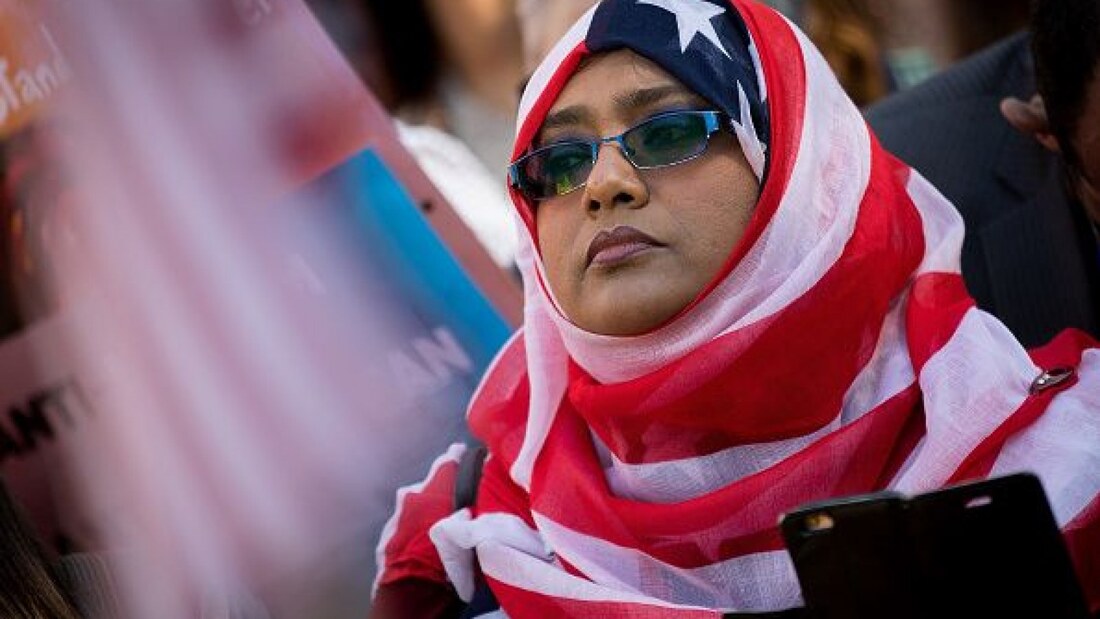SCOTUS to Consider Mechanism for Government Accountability After FBI Surveillance of MuslimsThe U.S. Supreme Court has agreed to hear a privacy and religious liberty case brought by three California Muslim men, who claim that the FBI and federal government conducted illicit searches and unlawfully discriminated against them on the basis of religion. The government sought to shut down the case by claiming that such alleged behavior was subject to the “state secrets” doctrine, thus preventing any further inquiry into the government’s seeming misconduct.
In 2006, the FBI sent a confidential informant to infiltrate a mosque. The informant spent over a year collecting names, phone numbers, emails and other information, as well as planting listening devices. Lawyers for the three plaintiffs are challenging a domestic FBI surveillance program that, according to their own informant, targeted members of this community based on their dedication to their religion. The FBI argued that it couldn’t defend itself against the religious claims of the lawsuit because to do so would involve sharing state secrets. So the FBI asked a lower federal court to dismiss the case. That judge agreed and went a step further, dismissing the religion claim and nearly every other claim as well. The Ninth Circuit Court of Appeals rejected the state secrets argument and ruled that the plaintiffs’ claims should be analyzed under procedures for viewing and protecting sensitive information set out in the Foreign Intelligence Surveillance Act (FISA). Now the Supreme Court will examine the logic of this argument: Does Section 1806(f) of FISA displace the state secrets privilege? This would authorize a court to potentially consider the merits of a lawsuit that challenges the lawfulness of government surveillance by actually examining the previously privileged evidence, but in secret. FISA outlines such discovery procedures in a variety of circumstances, though the parties vehemently disagree whether such circumstances include a civil rights lawsuit brought by the targets of surveillance. If the procedures do apply here, they would include inspections of materials in chambers by a judge with suitable clearance, who would then decide whether it is possible for plaintiffs with substantial claims to argue their case while protecting the secrecy of government information if there is indeed a legitimate security interest. But would that be a win for civil liberties, or just a reshuffling of the government’s secrecy deck? There’s a need to protect government secrecy, but how do we ensure that the government isn’t covering up bad-faith actions of the executive branch by using “classification” of documents as a weapon of mass defense, hiding the facts of a case behind either the state secrets precedent or in the FISA court? The government has a long and documented history of using secrecy to hide abuses dating as far back as 1953, in a Supreme Court case U.S. vs Reynolds, about an Air Force bomber crash that was later shown to be due to government negligence; in the infamous Pentagon Papers case, where the government sought to suppress publication of a questionably classified report that revealed the government’s concealment and deliberate deceptions surrounding the Vietnam War; and as recently as the 2020 fiasco of the FBI’s investigation of Trump campaign volunteer, Carter Page (which included one forged document and 17 serious errors of omission and commission). Should we consider it an outrage if the FBI directed a confidential informant to plant bugs in a mosque, targeting Americans based on their religion? Yes, unless there is evidence in this case that explains the FBI’s actions. The point is, we have no way of knowing for sure as long as the FBI is never required to defend itself on the substance rather than cover the entire case with a blanket of secrecy. The late Christopher Hitchens said that the essence of tyranny is not iron law; it is capricious law. But there are ways to defend against it. Whether FISA as currently written allows a way around the state secrets doctrine is something the Supreme Court will have to decide. But if it doesn’t, there needs to be some other mechanism to hold government accountable for bad behavior even when the government acts under the banner of national security. PPSA supports strong reforms of FISA and other federal surveillance programs with recommendations that include more openness in the FISA court by publishing opinions and allowing outside, independent civil liberties experts as amici to advise on civil liberties. Secret courts and secret programs should not be evaluated in secret by the same people who run them. Nor should we allow government institutions to hold our freedoms hostage behind an iron curtain of secrecy. Under the FBI’s claim of privilege and the district court’s ruling, we had slid further down that slippery slope. Will we slide again, this time faster and further down? Or will the Supreme Court or Congress put on the brakes with a ruling in favor of FISA or with an amendment fixing the problem – and affirm our system of checks and balances? We’ll find out some time next year. Comments are closed.
|
Categories
All
|


 RSS Feed
RSS Feed